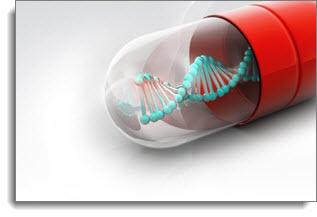 The evaluation and assessment process in psychiatry typically goes something like this: A patient enters the treating clinician’s office and is asked a series of questions pursuant to their presenting problem. Based on the answers provided, additional questions — in the form of a questionnaire or the use of a clinical scale — may be utilized to ascertain additional information. Then there’s usually a discussion with the patient regarding the findings, a diagnosis (or at least a preliminary one) is put forth, and in collaboration with the patient, a treatment plan is suggested. Pretty straightforward, right? Well, the mystery often begins when medication use enters the picture as part of the treatment going forward.
The evaluation and assessment process in psychiatry typically goes something like this: A patient enters the treating clinician’s office and is asked a series of questions pursuant to their presenting problem. Based on the answers provided, additional questions — in the form of a questionnaire or the use of a clinical scale — may be utilized to ascertain additional information. Then there’s usually a discussion with the patient regarding the findings, a diagnosis (or at least a preliminary one) is put forth, and in collaboration with the patient, a treatment plan is suggested. Pretty straightforward, right? Well, the mystery often begins when medication use enters the picture as part of the treatment going forward.
Drug prescribing has long been a trial-and-error phenomenon in both physical and psychiatric medicine. Physical medicine though has this advantage: science has provided us a whole lot more information about the body than it has about the brain, and this bears itself out in the track record of certain psychiatric medication classes. With antidepressants for example, only 30 percent of users will experience some measurable symptom relief after their first antidepressant trial. This is because trial-and-error prescribing doesn’t account for the genetic variabilities and biochemical makeup differences among us, so what works for one depressed patient may very well not work for another. Therefore, knowledge of a patient’s genetic background can aid clinicians in providing a more “personalized” medication strategy by predicting both drug response and tolerability. Clinicians can then use this information to make up for a gene defect or to adjust drug dosage to assist the rate at which a patient metabolizes different medications. This intervention is called Pharmacogenetic testing and it’s upon us.
There are several commercial outlets that sell pharmacogenetic tests for psychiatric applications. They include Genomind, Pathway Genomics, Genelex, Assurex Health, Genecept and GeneSight Psychotropic. The prices for these gene panels range from $99 on the low end to hundreds of dollars at the top end, and there is no strong push to influence insurance companies to pony up for these tests at this time. The sixty-four-dollar question though is: does this information lead to better clinical outcomes?
 A couple of studies have reported that GeneSight Psychotropic was effective for managing patients with depression — although there were methodological issues with patient assignment to study groups. In addition, prescribers and patients were not fully blinded, potentially influencing a placebo effect to occur, which could reflect improved outcomes for those getting the testing. Also, genetic makeup is but a small part of drug response and tolerability, with other issues serving as strong contributors. Substances such as tobacco and dietary supplements may interfere with the metabolism of antidepressants for example, and metabolic issues involving age, the disease process and gender can also affect how someone responds to certain drugs. Therefore, genetic and nongenetic determinants apply.
A couple of studies have reported that GeneSight Psychotropic was effective for managing patients with depression — although there were methodological issues with patient assignment to study groups. In addition, prescribers and patients were not fully blinded, potentially influencing a placebo effect to occur, which could reflect improved outcomes for those getting the testing. Also, genetic makeup is but a small part of drug response and tolerability, with other issues serving as strong contributors. Substances such as tobacco and dietary supplements may interfere with the metabolism of antidepressants for example, and metabolic issues involving age, the disease process and gender can also affect how someone responds to certain drugs. Therefore, genetic and nongenetic determinants apply.
As of this writing, pharmacogenetics is not ready for prime time, it’s expensive and this testing industry is significantly underregulated in that companies don’t have to prove the validity of their tests before marketing and selling them. It is however an exciting and intriguing development for psychiatry.
The art of clinical practice as it relates to prescribing medication will always hinge on establishing a clear rationale for drug use in the first place, but pharmacogenetic testing can likely help by shedding light on risk factors affecting some patients because of their individual biochemistry. These patients may benefit from closer and more frequent follow-up.
If risk can be classified and if these tests, through further refinement, are able to provide some sense of how patients are likely to do on medication treatment, this would be quite an advance.
Reprint Permission
Attribution Statement:
Joe Wegmann is a licensed pharmacist & clinical social worker has presented psychopharmacology seminars to over 10,000 healthcare professionals in 46 states, and maintains an active psychotherapy practice specializing in the treatment of depression and anxiety. He is the author of Psychopharmacology: Straight Talk on Mental Health Medications, published by PESI, Inc.
To learn more about Joe’s programs, visit the Programs section of this website or contribute a question for Joe to answer in a future article: joe@thepharmatherapist.com.